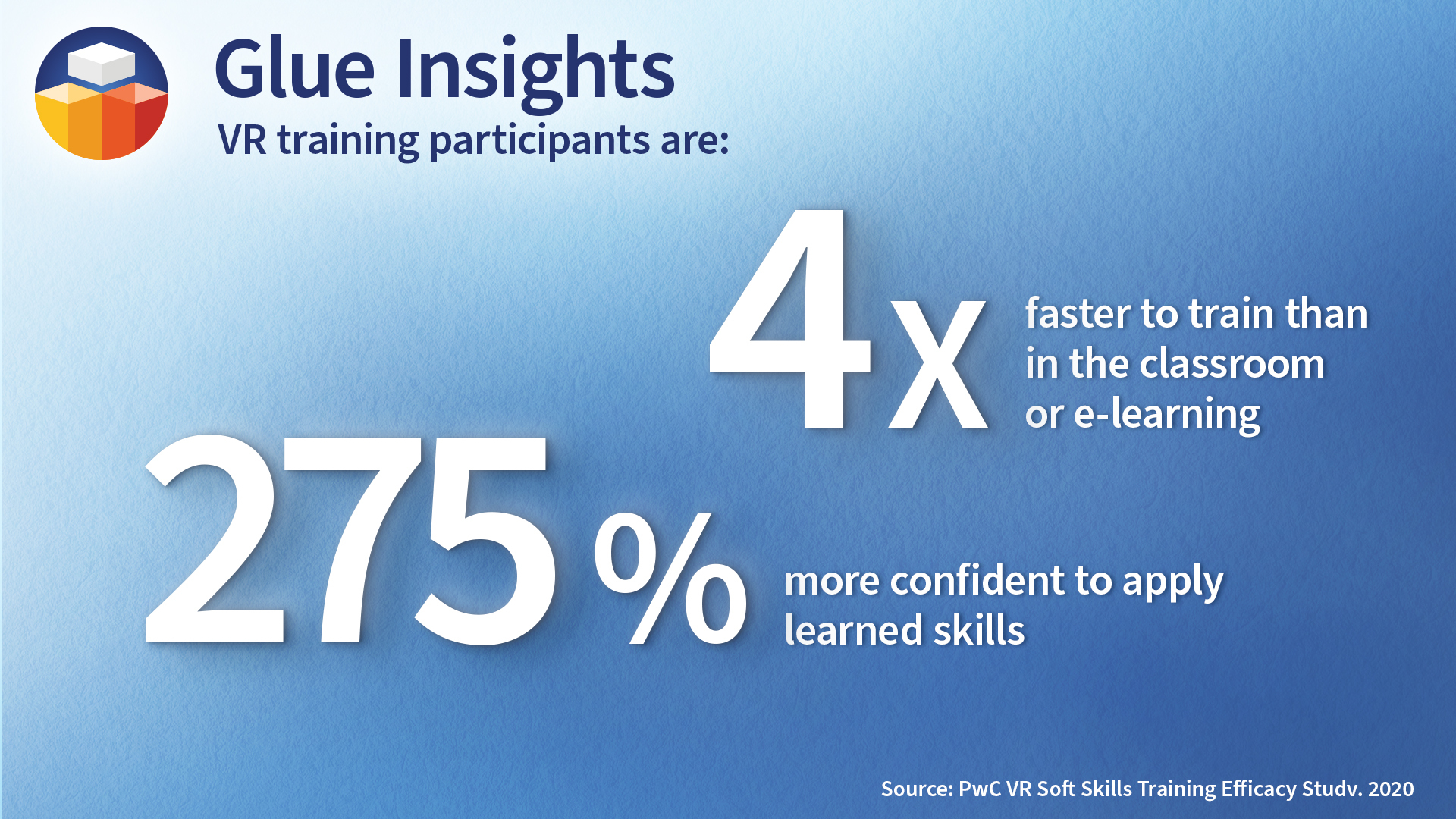How effective VR is for training and particularly the learning outcomes?
PwC conducted a VR Soft Skills Training Efficacy Study in 2020, which resonated well with the VR community and the Glue Team. The study confirmed our own practical evidence on virtual reality being well-suited for training use cases, in this case with soft skills training.
In this Insight, we particularly want to highlight two research findings from the study which emphasize the benefits of VR training vs classroom or e-learnings:
1. Participants of VR training needs 4x less time to complete a course than those in classrooms or using e-learning. Training in VR can be well-structured and focused only on a learned topic or skill. Being a highly engaging experience, VR also keeps people completely focused on a subject as there is no chance to multitask and much fewer chances to be distracted in comparison with either classroom or online learning.
2. VR learners demonstrated an ability to apply learned skills to their jobs significantly better as they showed up to 275% more confidence to act on the learnt subject. In VR, you can practice the situation during training in a very similar situation as in real life, making it easy to transfer your learned skill from the virtual environment to your job.
At Glue, we are committed to provide virtual collaboration capabilities which enable our customers to capitalize on similar training benefits of VR for their training as what the PwC Study outlined.
In Glue, you learn and collaborate in immersive virtual spaces with 3D spatial audio and you express yourself with customizable, AI-powered avatars making every conversation feel like face-to-face. This is crucial for effective communication and for soft skills training, too.
Source: What does virtual reality and the metaverse mean for training? PwC


